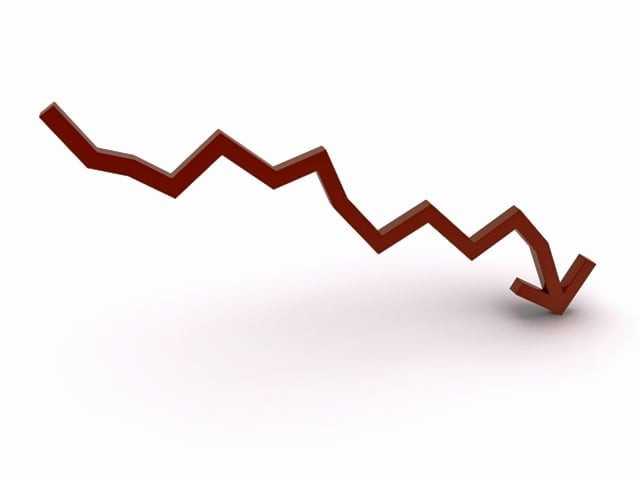Record in country’s history: Fiscal deficit stands at Rs1.48tr in 10 months
Govt claims it is chiefly `massive’ power subsidy that is telling on fiscal stability.

The federal government has claimed that it is chiefly the subsidy on electricity which is telling on fiscal stability, as the government has spent Rs2.44 trillion or 95% of the total annual budget in ten months while its net income remained at Rs983 billion, resulting in a deficit of Rs1.48 trillion -- the highest ever in the country’s history.
Economic and fiscal position in the past ten months was discussed here on Friday at a meeting of the
Fiscal and Monitory Policies Coordination Board. The meeting was convened to review the performance up to now and required actions during the first quarter of the next fiscal year. The high-powered body consists of ministers of finance, commerce, governor of the State Bank of Pakistan, and deputy chairman of the Planning Commission and secretaries of the relevant ministries.
The budget deficit of Rs1.44 trillion is 7.2% of the total size of the economy. It is Rs469 billion or 3.2% higher than the annual target of Rs975 billion or 4% of GDP.
The finance ministry has its own style to depict a comparatively less bad picture of the economy. “Excluding one-off payments of Rs391 billion that was made to clear past circular debt, the government spent 80% of the budget as against our projections of 88%”, said Rana Assad Amin, Adviser to the Finance Ministry.
He said “massive” power subsidies are affecting our efforts to contain fiscal deficit, adding the cabinet committee on energy reforms is trying to resolve the issue.
The Board was also briefed that in the past nine months the total public debt had risen to Rs12.1 trillion -- a net addition of Rs1.32 trillion in this period. During this period the domestic debt swelled to Rs7.2 trillion, an addition of Rs1.2 trillion while external debt grew only Rs124 billion and stood at Rs4.8 trillion.
The Board has asked the deputy chairman of the Planning Commission to present a detailed paper, showing the implications of monetary policy on growth and investment. The falling investment has become a major concern as it has slipped to the lowest level in the country’s history standing at 12.5% of GDP.
The Board discussed the next year’s projected inflation target of 9.5% and the possibilities to achieve the target and its adverse impact on growth.
According to an official of the finance ministry, the central bank told the Board that its primary job was to ensure economic growth and it could not take the risk of curtailing growth and investment to curb inflation.
“For the last two consecutive years, the rate of inflation has been declining and the government expects that the trend would continue in the next fiscal year as well,” claimed Federal Finance Minister Dr Abdul Hafeez Shaikh while talking to The Express Tribune. He, however, said that even if the government managed to restrict inflation to 9.5%, it would still be high.
In the upcoming budget, the government would chiefly aim at ensuring economic stability.
Balance of payments position
The Board was informed that the current account deficit gap between external receipts and payments might remain at $4.2 billion as against the budgetary estimates of $2.4 billion. In ten months, the current account deficit has already swelled to $3.4 billion.
The Board was informed this would result in an erosion of $3.92 billion in the SBP reserves that would fall to $11.1 billion, just sufficient to support only 2.8 months’ exports bill.
The Board was told that so far the government had received only $1.58 billion project and programme loans against the target of $3.2 billion. The Board was informed that foreign direct investment could plunge by 48% this year as the government had received only $668 million new investment so far and the figure might go up to $850 million.
The FDI in financial services plunged 76%, in power sector it dipped 117% and in the communication sector it dropped by 1120%.
Published in The Express Tribune, May 26th, 2012.



















COMMENTS
Comments are moderated and generally will be posted if they are on-topic and not abusive.
For more information, please see our Comments FAQ